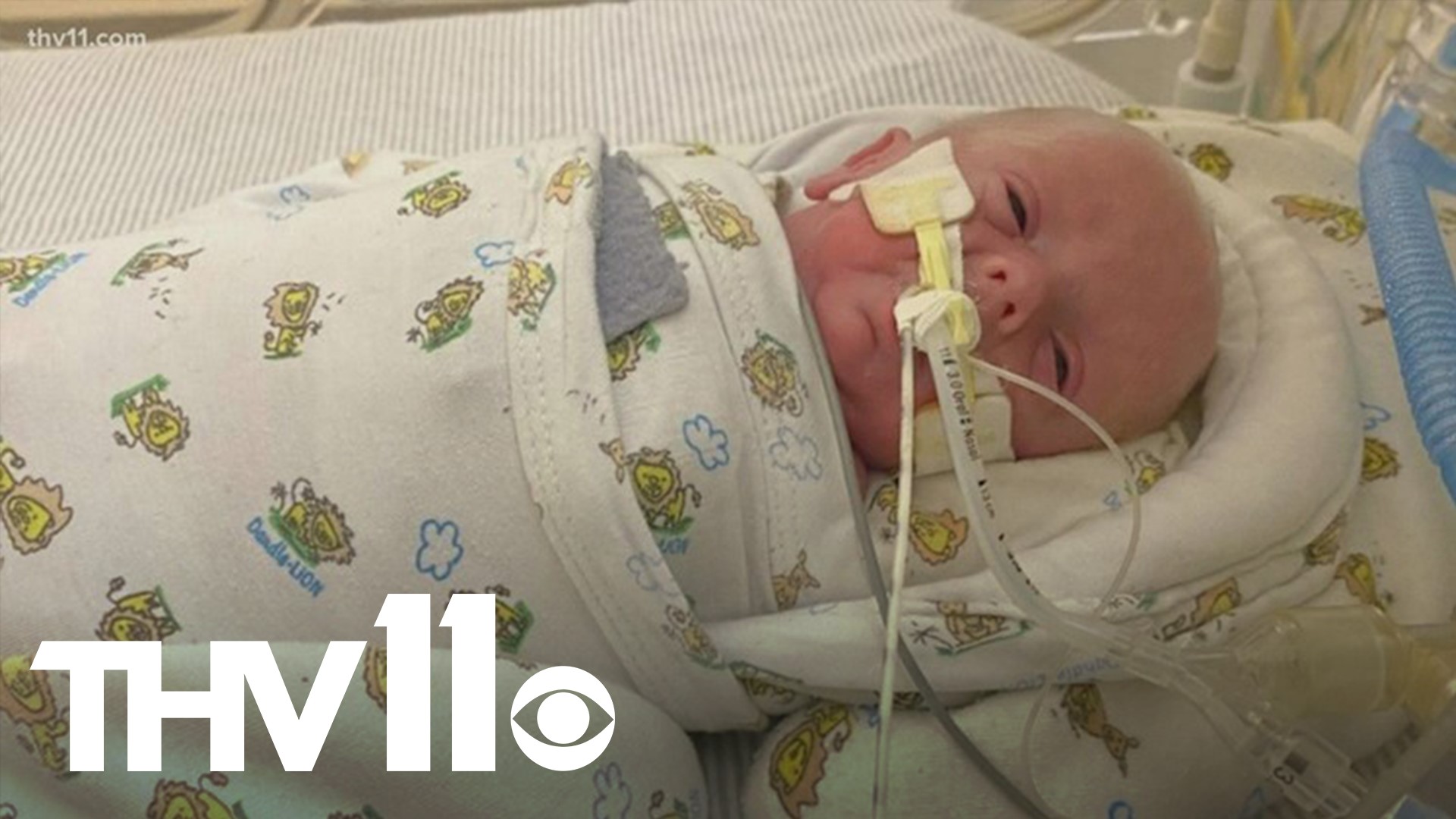LITTLE ROCK, Ark. — For parents who have babies in the NICU, the days and months after their child is born can be some of the hardest because they can't be with their newborn all the time.
One Arkansas hospital is trying to make those days a little easier, though, by bridging the gap between doctors and families.
The UAMS Institute for Digital Health & Innovations e-Link Portal gives NICU families an opportunity to meet virtually with the doctors and residents taking care of their babies.
New mother, Jaclyn Becker, said it's given her much needed comfort during a difficult time.
"Being separated from him has been, has been really hard. Now that he's born, you know, you want your baby to be home with you and we don't really get to have that right now," she said.
For Becker, the days after the birth of her first child haven't been what she imagined.
"He's been in the NICU, since he was born," she said.
Ridley Becker was born on Oct. 26 at 25 weeks.
While Becker can't physically be at the hospital all the time, virtually she hasn't missed a beat.
"I don't feel like I'm disconnected and I feel like that sometimes when I can't be here 24/7 and so this definitely helps," she said.
For the past few months, Dr. Whit Hall and his team on the NICU floor at UAMS have connected with parents, like Becker, through the screen.
Since they never know when rounds will be, Dr. Hall said this gives parents an opportunity to know what's going on with their baby at all times.
"It's not good for anybody to be in the hospital 24/7, so this is a way for families to really bridge the gap and to be here when we round," he said.
With just one text, parents can log-in and ask any question to every person taking care of their child.
The importance of understanding what's happening inside their little room is something Dr. Hall feels personally, since he experienced it with his own family for several months.
"When things were going well with my grandchild and then my child, my whole world was fine. When things were going poorly, there's nothing you could do to make me cheer up," he said.
Knowing that's what families deal with daily, Dr. Hall hopes the use of a web-cam can provide some sense of comfort.
"These families have a really hard time with their baby in this unit and that's the one thing that we could do that might make their life just a little bit easier," he said.
Dr. Hall believes this can be transmitted to other areas of UAMS and even other hospitals, as well.

